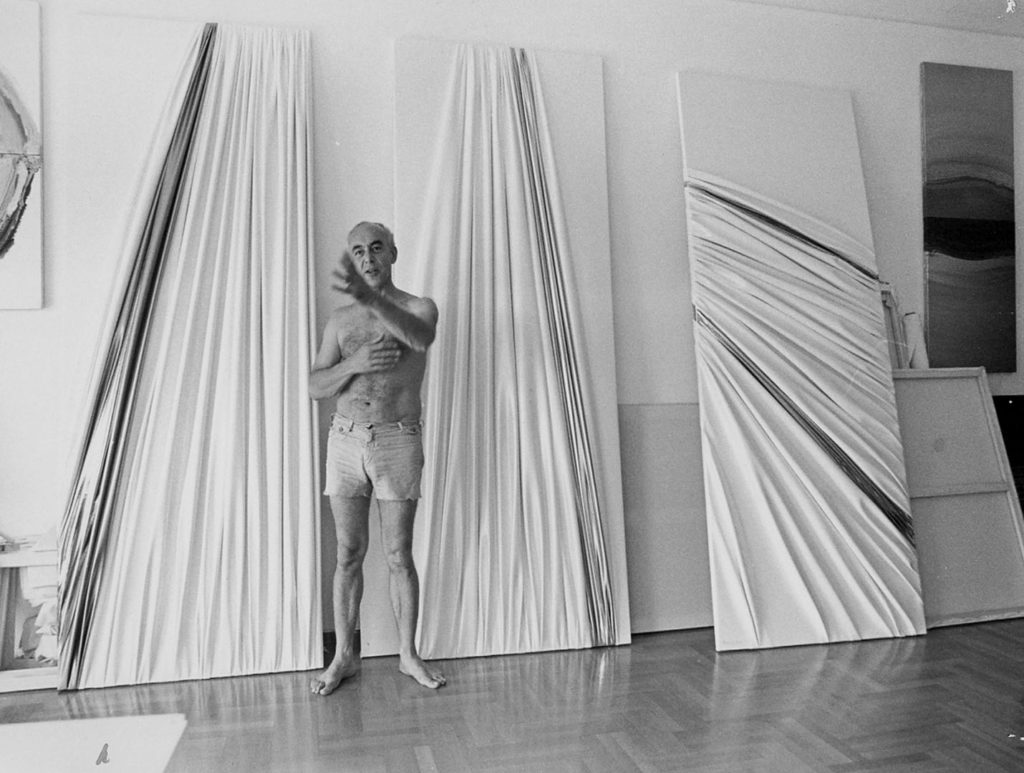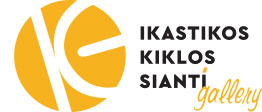Your cart is currently empty.
Paniaras Kostas (1934 – 2014)
He was born in 1934 in Kiato (Korinthia). After taking his first painting lessons with Theodoros Lekos (Errikos), he studied at the Athens School of Fine Arts under Yannis Moralis, taking, at the same time, lessons with Eleni Zongolopoulou. His first solo exhibition was presented in 1956 in Athens (Monica Pane gallery). Then he left for Paris, where he studied painting at the studio of Andre Lhote, mosaic and fresco at the studio of Gino Severini and lithography at the École des Beaux Arts.
He stayed in Paris until 1975, visiting, at the same time, the U.S.A., Iran and the Far East. During that period, his painting evolved by assimilating elements from the international contemporary art. Soon he adopted a gestural style and explored the relationship between form and background, emphasizing on the role of colour. Colour, whether in explosive monochromes or in unexpected combinations that form dynamic compositions, is the undeniable protagonist of his entire oeuvre.
He stayed in Paris until 1975, visiting, at the same time, the U.S.A., Iran and the Far East. During that period, his painting evolved by assimilating elements from the international contemporary art. Soon he adopted a gestural style and explored the relationship between form and background, emphasizing on the role of colour. Colour, whether in explosive monochromes or in unexpected combinations that form dynamic compositions, is the undeniable protagonist of his entire oeuvre.
 He gradually began to test the use of colour in three-dimensional works, sculptures or constructions. This shift, particularly evident since the ‘80’s, determined his future work periods, after he settled in Greece. Among the most significant aspects of his mature phase are the relief, undulating surfaces made of corrugated vinyl sheets, the painted Hellenistic sculptures and museum replicas that subvert the traditional interpretations of the classical era, the mixed-material installations that interfere in the spatial layout, and the extensive use of pure colours.
He gradually began to test the use of colour in three-dimensional works, sculptures or constructions. This shift, particularly evident since the ‘80’s, determined his future work periods, after he settled in Greece. Among the most significant aspects of his mature phase are the relief, undulating surfaces made of corrugated vinyl sheets, the painted Hellenistic sculptures and museum replicas that subvert the traditional interpretations of the classical era, the mixed-material installations that interfere in the spatial layout, and the extensive use of pure colours.His deeper relationship with the Greek landscape, particularly evident in his paintings, is not expressed through a representational idiom, but occurs indirectly, within the fluid mobility of his brushstrokes, his atmospheric transparencies and the emotionally charged chromaticity.
He presented his works – paintings, sculptures, constructions and installations – in many solo and group exhibitions in Greece and abroad. From 1961 to 1983 he cooperated with the Alexander Iolas Gallery in New York. Retrospective exhibitions of his work have been presented at the Pieridis Art Gallery (1984) and the Benakis Museum (Landscapes and Utopia, 2007).
He died in Athens in 2014.

